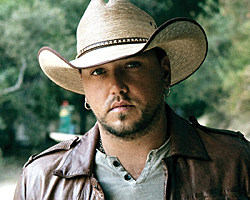(A continuing series, with the goal of keeping his memory and philosophies alive) Here are some of my favorite paragraphs from articles Trachman wrote over the years. They're in no particular order, other than the fact that I've strung together some that obviously complement each other.
Enjoy with me...
Personality is the natural state of radio, for most listeners.
I think most people who turn us on want some form of companionship, whether it be the limited contact of the DJ on a music-intensive Rocker, or the full-blown camaraderie of the morning host on a full-service station. What chases people away is chattering jocks saying little or nothing worth listening to.
I believe we spend too much time begging people to remember us, and far too little in giving them some motivation for *wanting* to remember us.
In real life, we remember individuals because of the things they say, the unique ways they impress us; the way they impinge on our thoughts and feelings and make us think and feel in return.
In radio, we hope that people will remember us because we say our names (call letters, frequency) and positioning statements so often.
Whom do you think you're more likely to remember -- someone who gets you to respond to them? Or someone who keeps repeating a couple of facts which are important to him, but practically meaningless to you?
What's been lost with all the emphasis on formatics is everything else.
The contact with the listener; the sense of humanity; above all, the creative impulse of the performer. I believe the right thing to teach young jocks is this: "Here is our format. I expect you to follow it strictly... *unless* you have good reason. If, for a few minutes, these rules interfere with something you've *got* to do, something both you and your listener will enjoy, something that will make your show more appealing to listen to, then *do it*! Be prepared to explain your reasons to me later. If they're good, I will not only approve, I may even take you to lunch. If they're not, well, you had my permission, so let's talk it over and see how we can fine-tune your approach."
Have something to say.
So obvious. So elusive. Personality radio isn't in trouble because the DJs talked too much; it's in trouble because we said too little that was worth hearing. Talk about your community, this day, your listener's life and your own. How are you going to sound intimate and real if you never ever Share something real from your own life with your friend, the listener? If all your raps have the same inflection, and you never express a true feeling? My name for the condition that destroys jocks' credibility and leaves them sounding like machines: "Up And Bright Mania." How come the PD never says to you, "Once in awhile, be down and tender..."??
My advice is: LIVE all you can.
You don't become an interesting personality by couching out in front of the TV every night, and you don't learn to talk intelligently and *colorfully* about the world by experiencing it second hand. Listeners expect us to be slightly "larger than life," more active, more involved, more interesting than most people. Ideally, we turn ourselves into the kinds of people *they* are in their own fantasies.
Emotional variety is one of the things that makes you believable on the air.
All real human beings display it. One minute you're up, the next you're down. Sometimes you're assertive, sometimes intimate; you're funny, then serious, then sarcastic, then empathetic. The emotional repertoire you can call upon is among the things which define you as an individual: a "personality," as opposed to an "announcer." Not everyone will like the "real you." You can't win 'em all. But if you never show who you really are, you don't even give people a chance to like you. And if you're worried about offending anyone - reflect for a moment on how you might spend Howard Stern's paycheck,
Make sure that your new listener feels included in everything you do.
Every break should be self-contained, as though that may be the only break your listener will hear this day. You may have given the station's phone number out a thousand times, but to assume I know it, when I'm just sampling you for the first time, insures that I'll feel left out. Each time you refer to station personnel, they should be identified. Not, "I was talking with Sheila before...," but "I was talking with Sheila, your overnight host on KJT before..." Whenever you promote or play a contest -- although your regular listener may have heard about the prize and how to enter a hundred times, HE'S not the one the contest is for! You've already got him. It's the new listener you're trying to entice, and he or she doesn't know the prize yet, nor how to win it.
When you're doing an interchange, the other party (be it contestant, partner or news person) becomes a "surrogate" to the listener.
The way you treat him or her is the way the listener will feel treated. So don't put him down, correct him, make him look foolish or play "one-up" with him. Never leave him/her sounding or feeling like the "goat," or your listener will sense this bullying tendency in you and identify with your "victim."
In one way or another, a lot of us function -- or *seem* to function -- normally, even wonderfully, in the little dream world we've created.
Nobody can see our obesity, smell our breath or see our limp or our balding head. Or... Or -- if we're good at it -- sense our insecurity. At the other end of this fantasy is a listener who *wants* to believe; someone who wants to think of us as a little larger than life, as the perfect companion, the intimate friend. Between our fantasy and theirs, the illusion can work perfectly -- provided we're talented enough to offer our friendship and to create the illusion that we're talking directly to him or her.
Satellite radio is a very listenable sound for many people.
It's surgically clean, clutter-free; when it's running well, you don't hear a lot of mistakes. No erratically performing jocks, no long-winded, self-indulgent chatter. You don't hear any local chatter or much real intimacy either. But, all other things being equal, it appears more people will be drawn to an antiseptic, remotely-programmed station, than to a poorly executed local
one.
Save good news about your community whenever it clears the wire or is reported in by your news department, staff, or listeners.
Use it to counter-balance the usual run of grim stories. Make sure every shred of "good news" about your market is spiked and re-written as often as necessary. The effect is to position yourself as the station that always has "something nice" to say about the town. A very nice position to occupy, indeed...
I believe radio is more like other businesses than we like to admit.
Our managers are no flakier than managers in other fields, no less humane, no more callous. In my experience, managers, to borrow a quote, are not "like" the rest of us--they *are* the rest of us. Some of them are nice people; some of them aren't. Some of them are faithful to their long-term self-interest, some are self-destructive, and a lot are both, at different times. And because their skills are very different from those of "production" people (that's us, folks), we often have problems communicating with each other. So it is; so it always will be.
(What we have just started calling "terrestrial") radio will survive or perish as a local medium.
There is nothing non-local we do which can't be done better by others. Not news: we've lost that to TV. Not music: anyone with an in-car CD player or satellite radio knows better. Not high-powered non-local personality: see Stern, Howard. What we *can* do better than any others is to be neighbors, members of the community, companions, symbol and distributor of the local life-style.
Generality: If you just play the hits, you can't go too far wrong.
Specific: But if everybody's "just playing the hits," then doing so gives you no advantage.
In the long run, I believe the ability to be (and thus, to sound) intimate on the air flows from self-confidence.
It's a by-product of feeling good about who you are and how well you do what you do. For most of us, this comes with maturity. I don't know any way to rush it. I didn't begin to acquire that kind of self-acceptance until I was past thirty. But perhaps my pointing out to you that this is one of the keys to success as a performer will help aim you in the right decision.
If you believe, as I do, that one of radio's few remaining exclusive strengths is its potential for intimacy, then it's to your advantage to sound like you're talking to one person.
And in my experience, the only way you can sound that way is if you think you *are* that way: talking to one person. To anyone who listens to a lot of DJ tapes, the difference is glaringly obvious: so many DJs today sound like they're talking to "no one in particular."
I believe a station becomes fun to listen to when it is perfectly obvious that the DJ's are having fun themselves.
You can't mandate it; "Have fun, or you're fired." But when they're involved with *this* community on this day, participating in the life of the listener, expected to be creative, invited to respond to events, I think you'll find most of your air talents are having fun on the air, and that's contagious. As I've mentioned a few times before, Having Fun Is Good For You.
'WILL RADIO BE PUSHED OUT OF THE CONNECTED CAR?" IS THE WRONG QUESTION FOR
BROADCASTERS TO ASK
-
A recent A&O&B Facebook post from Jaye got quite a bit of attention.
It concerned a story by the Las Vegas Review-Journal’s Todd Prince
speculating about ...
8 years ago




































